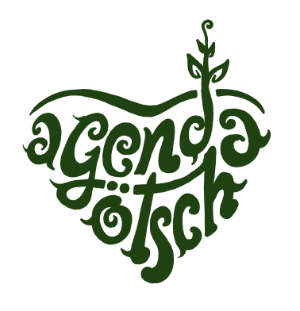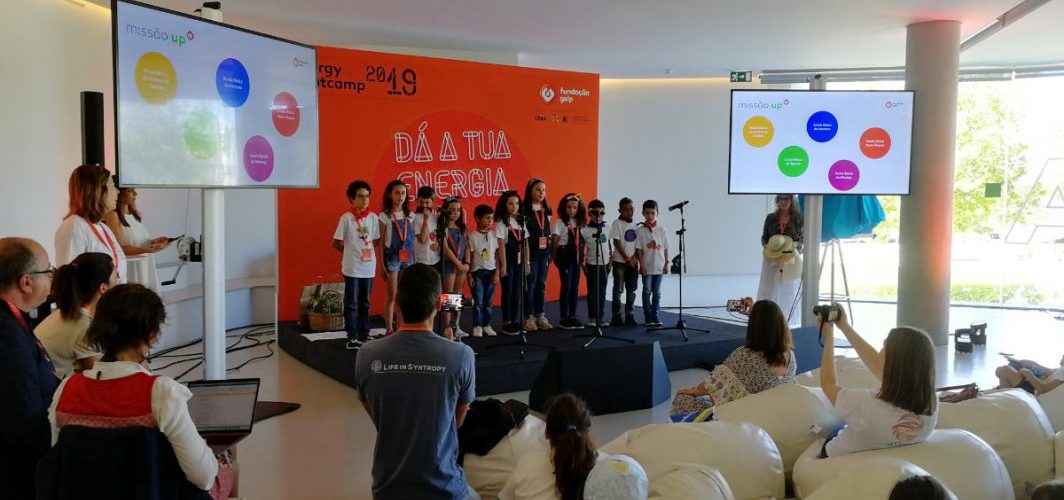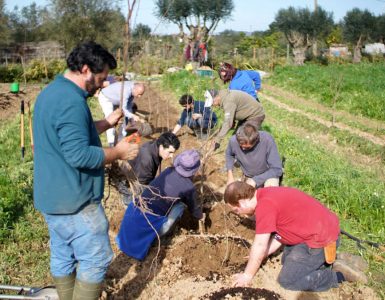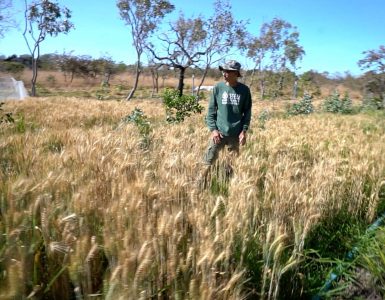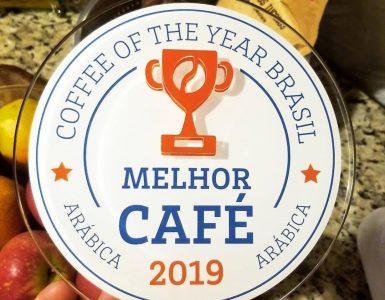We are proud to share with you that a project we started six months ago won a sustainability contest promoted by Galp Foundation, in Portugal. Thanks to the teacher Goretti from Santana de Cambas School, who applied for the prize, the children from Santana de Cambas School (Mertola) presented their syntropic garden in front of a 350-people audience at the event Energy BootCamp, near Porto. Amongst 1437 schools, they analyzed 150 projects and we ended up in second place in the category “MissãoUP”. Watch below the video used in the presentation.
THE BEGINNING
The more we study the history of agriculture, the stronger it gets the hypothesis that substantive changes in the way we produce food have always been and will be associated with critical social changes.
It was with this idea in mind that Felipe and I embraced the work with the children of all public schools in a great small town in the countryside of Portugal. Small because Mertola holds one of the lowest population densities in the country. And great not only because the municipality’s territory is huge, but also because here we found people and institutions willing to take on an important responsibility: to prepare today’s children for an uncertain environmental future.
In terms of ecosystem and landscape, this region closely resembles the conditions of the Brazilian semi-arid, the entire Mediterranean and parts of California, Chile, Australia and South Africa. All areas that do not need official reports or catastrophic climatic surveys to conclude that the desert knocks at their door. Soil and water are already daily limitations. This reality requires a whole new level of debate around which agriculture techniques we should and shouldn’t embrace.
BUT WHAT IS THE PLAN? TURN ALL CHILDREN INTO FARMERS?
Actually, that wouldn’t be a bad idea. Cicero already said in ancient Rome that a society that does not value its farmers is a society doomed to failure. But knowing how to produce food at the same time as recovering degraded ecosystems refers to much more than our imaginary usually associates with the role of a farmer. Regeneration by use is only possible when based on deep ecological knowledge coupled with techniques that are able to synchronize food production to ecosystem’s successional dynamics. By using concepts of Syntropic Farming, we can offer the children much more than technical skills. The syntropic garden is a living laboratory. It stimulates the autonomous observation of nature, where children can plant, take care, harvest and eat the result of their cultivation. The students do not learn how to make a garden, they learn how to face and, above all, to revert the environmental impacts of our society. This is an opportunity to promote education to develop sustainable human communities.
WHAT WE ALREADY HARVESTED
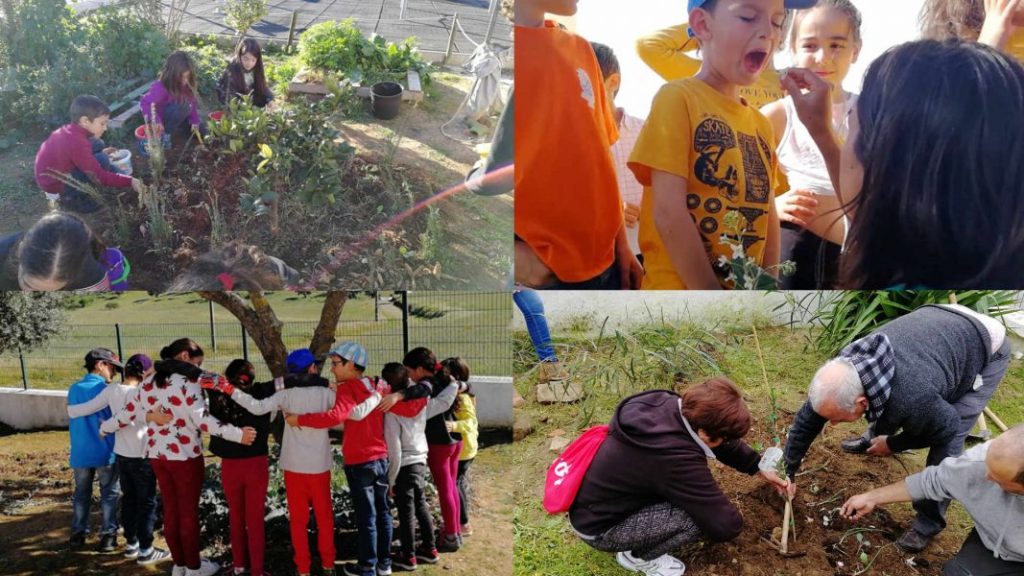
Since we started this work 6 months ago, we already harvested a lot of lettuce, broccoli, cabbage, potatoes, onions, grains and various vegetables of the season. But we also had other important yields:
- More than 50 students have adopted the garden as their new space to play and learn at the same time;
- The gardens create spaces of intergenerational sociability;
- All that combined foster affection relationships within the community and the territory, which reduces the rural exodus;
- The children are able to reflect on the origin and seasonality of food and to recognize the importance of a diet free of agrochemicals;
- The trees planted together with the garden give the school permanent areas of shading and heat drainage.
We thank the people within the institutions who made this work possible. It is only with partnerships driven by a common good that it becomes possible to dream and make real the systemic changes that we so badly need. Thanks to Câmara Municipal de Mértola, Agrupamento Escolar de Mértola, Escola Profissional Alsud, Associação Terra Sintrópica, Somincor, and of course, all children, parents, and school staff involved in this initiative.
This is an example of a local project that addresses global challenges. Where there is degraded land, there is work to be done.
